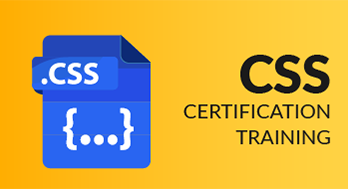In today’s fast-paced world, the demand for professional organizers is on the rise. As people grapple with increasingly hectic lives and cluttered spaces, they seek the expertise of professional organizers to bring order and serenity into their homes and offices. However, becoming a certified professional organizer is not as simple as decluttering a room. It involves rigorous training, hands-on experience, and, of course, a financial investment. In this article, we will delve into the world of professional organizer certification and explore the costs associated with obtaining this qualification.
Why Pursue Professional Organizer Certification?
Before we dive into the cost aspect, it’s essential to understand the importance of professional organizer certification. While it is not legally required to work as a professional organizer, certification can provide numerous benefits:
- Credibility: Certification lends credibility to your services, assuring potential clients that you possess the skills and knowledge required to transform chaotic spaces into organized havens.
- Skill Enhancement: Certification programs offer comprehensive training that covers a wide range of organizing techniques, from time management to space optimization. This knowledge can significantly improve your effectiveness as an organizer.
- Competitive Advantage: In an increasingly competitive field, certification sets you apart from non-certified organizers and gives you a competitive edge.
- Network and Community: Certification often comes with access to a community of fellow organizers, offering support, resources, and potential job opportunities.
Now that we’ve established the importance of professional organizer certification, let’s delve into the costs involved.
Cost Components of Professional Organizer Certification
The cost of obtaining professional organizer certification can vary significantly depending on several factors, including the type of certification, the organization providing it, your location, and the resources you already possess. Let’s break down the key cost components:
- Training and Education
Most professional organizer certification programs require candidates to complete a specific number of educational hours. These hours can be fulfilled through various methods, including in-person classes, online courses, and workshops. The cost of training and education can range from a few hundred dollars to several thousand, depending on the program’s duration and reputation.
- Study Materials and Resources
Certification candidates often need to invest in study materials and resources, such as textbooks, workbooks, and online courses. The cost of these materials can vary, but it’s essential to budget for these expenses when pursuing certification.
- Exam Fees
After completing the necessary training, candidates must pass an examination to demonstrate their knowledge and skills. Exam fees can range from $200 to $500 or more, depending on the certifying organization. It’s important to budget for this expense and prepare adequately for the exam to avoid retake fees.
- Membership Fees
Many certifying organizations require members to pay annual membership fees. These fees provide ongoing access to resources, support, and networking opportunities within the professional organizing community. Membership fees can range from $50 to $200 or more per year.
- Insurance
While not always mandatory, professional liability insurance is essential for organizers. It provides protection in case of accidents or professional errors. The cost of insurance varies based on your location, business size, and coverage needs.
- Travel and Accommodation
If your chosen certification program or examination is not available locally, you may need to budget for travel and accommodation expenses. These costs can vary significantly based on your location and the certification program’s location.
- Continuing Education
To maintain your certification, many organizations require you to complete continuing education units (CEUs). These units can be obtained through workshops, seminars, and online courses, which come with their own costs. Budgeting for ongoing education is essential to keep your certification current.
- Marketing and Business Expenses
Once certified, you’ll need to invest in marketing and business expenses to establish and grow your professional organizing business. These costs may include website development, advertising, office supplies, and software tools for organizing and managing your clients.
Factors Affecting Certification Costs
Several factors can influence the total cost of professional organizer certification. Understanding these factors can help you plan your path to certification effectively:
- Certification Type: There are different types of certification, ranging from basic to advanced levels. The level of certification you choose will impact the cost of your training and examination.
- Certification Organization: The certifying organization you select plays a significant role in determining your overall costs. Some organizations are more established and well-known, which may come with higher fees.
- Geographic Location: Your location can affect the cost of training, examination, and membership fees. Certification programs may be more accessible and affordable in some regions compared to others.
- Existing Experience: If you already have experience or education in organizing, you may require fewer training hours, reducing the overall cost.
Popular Certification Programs and Their Costs
There are several well-recognized certifying organizations in the field of professional organizing. Let’s explore a few of them and the associated costs:
- National Association of Productivity and Organizing Professionals (NAPO)
NAPO is one of the most prominent professional organizing organizations. They offer a certification program known as the Certified Professional Organizer (CPO) designation. The costs associated with NAPO certification include:
- NAPO Membership: Annual membership fees range from $150 to $250.
- CPO Exam Fee: The exam fee is approximately $450.
- Training and Study Materials: Costs can vary depending on the training program and materials you choose.
- Institute for Challenging Disorganization (ICD)
ICD is known for its focus on working with clients who have chronic disorganization issues. They offer a certification program called Certified Professional Organizer in Chronic Disorganization (CPO-CD). Costs include:
- ICD Membership: Annual membership fees range from $80 to $150.
- CPO-CD Exam Fee: The exam fee is approximately $500.
- Training and Study Materials: Costs can vary depending on the program and materials.
- Professional Organizers in Canada (POC)
POC is Canada’s leading professional organizing association, offering certification through the Trained Professional Organizer (TPO) designation. Costs include:
- POC Membership: Annual membership fees range from $300 to $450.
- TPO Exam Fee: The exam fee is approximately $250.
- Training and Study Materials: Costs can vary depending on your chosen training program and materials.
- Board of Certified Professional Organizers (BCPO)
The BCPO is an independent certifying organization that offers the Certified Professional Organizer (CPO) designation. Costs include:
- BCPO Application Fee: The application fee is approximately $50.
- CPO Exam Fee: The exam fee is approximately $450.
- Training and Study Materials: Costs can vary based on your chosen training program and materials.
It’s important to note that these costs are subject to change, and you should verify the most current fees with the respective organizations. Additionally, there are many other smaller organizations and training programs that offer certification in professional organizing, each with its own unique cost structure.
Also Read: Earned Value Professional Certification
Financial Considerations and Funding Options
Understanding the costs associated with professional organizer certification is crucial for planning your career path. Here are some financial considerations and potential funding options to help you manage these expenses:
- Budgeting: Create a detailed budget that includes all anticipated costs, from training to exam fees, membership dues, and ongoing education expenses. This will give you a clear picture of your financial commitments.
- Scholarships and Grants: Some certifying organizations or industry associations may offer scholarships or grants to help offset the cost of certification. Be sure to explore these opportunities.
- Employer Support: If you’re pursuing certification while working for an organization, inquire about whether your employer offers financial support or reimbursement for professional development and certification.
- Payment Plans: Some certification programs offer flexible payment plans, allowing you to spread the cost over time, making it more manageable.
- Tax Deductions: Consult with a tax professional to determine if any of your certification-related expenses are tax-deductible. Keep detailed records of your expenses for potential tax benefits.
- Freelance and Gig Work: Consider taking on freelance or gig work in the organizing field while pursuing certification. This can help offset some of the costs and provide practical experience.
Conclusion
Becoming a certified professional organizer is a rewarding and potentially lucrative career choice. However, it’s important to be aware of the associated costs and plan accordingly. By understanding the various cost components, budgeting effectively, and exploring financial assistance options, you can navigate the path to certification with confidence. Ultimately, the investment you make in your professional development can open doors to a fulfilling and successful career in the world of organizing.




